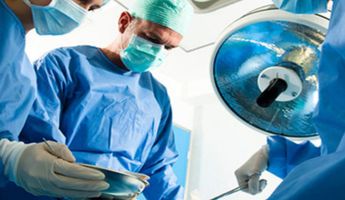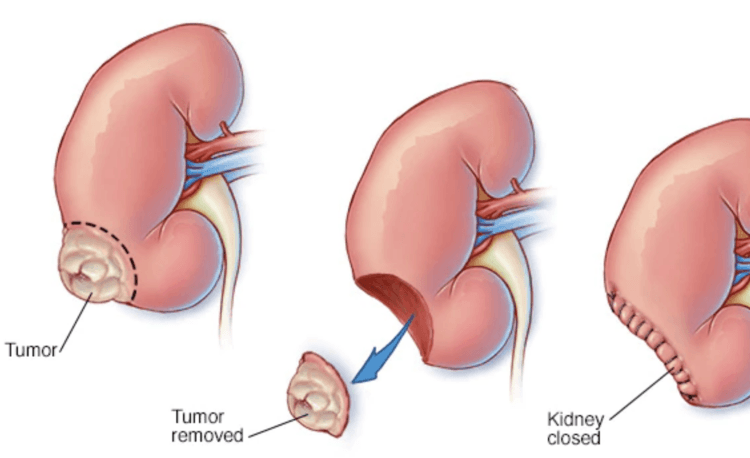Nephrectomy in Munich
Search and Compare the Best Clinics and Doctors at the Lowest Prices for Nephrectomy in Munich

Find the best clinics for Nephrectomy in Munich
With Medijump you can browse 2 facilities offering Nephrectomy procedures in Munich. The cheapest price available is $1,628 in Berlin. And for the cheapest price globally, prices start from $1,228 in Morocco.
Nephrectomy in Germany
Price: $ 1,628
Nephrectomy in Berlin
Price: $ 1,628
Morocco offers the best prices Worldwide
Price: $ 1,228
From 166 verified reviews
Martin xxx, 22 September 2020
Von Anfang bis Ende sehr freundliche und kompetente Mitarbeiter.
University Hospital of Munich (LMU), located in Professor Huber Platz, Munich, Germany offers patients Nephrectomy procedures among its total of 223 available procedures, across 26 different specialties. Currently, there's no pricing information for Nephrectomy procedures at University Hospital of Munich (LMU), as all prices are available on request only, whilst the national average price is approximately ฿122,800. There is currently a lack of information available on the specialists practicing at the Hospital, and they are not accredited by any recognized accreditations institutes
WHY US?
At Medijump, we're making medical easy. You can search, compare, discuss, and book your medical all in one place. We open the door to the best medical providers worldwide, saving you time and energy along the way, and it's all for FREE, no hidden fees, and no price markups guaranteed. So what are you waiting for?

Free

Best Price

Widest Selection

Risk-Free
What you need to know about Nephrectomy in Munich

Nephrectomy is the surgical removal of all or part of a kidney. There are two types of surgery for nephrectomy: radical nephrectomy (to remove the entire kidney and tissues of fat that surround the kidney) and partial nephrectomy (removes only diseased tissue from a kidney and leaves the healthy tissue in place). The surgery is performed to treat kidney cancer and other kidney diseases. Sometimes, it is also performed to remove a healthy kidney from a donor for a transplant.
What does a Nephrectomy Procedure Involve?
Nephrectomy can be performed through laparoscopic or open surgery. Both are performed under general anesthetic. Laparoscopic nephrectomy is usually performed to remove part of your kidney. Your surgeon makes small incisions in your abdomen to insert the laparoscope and small surgical tools. If your entire kidney needs to be removed, your surgeon will use open surgery. During open surgery, your surgeon makes one large incision on your abdomen or along your side.
How Long Should I Stay in Munich for a Nephrectomy Procedure?
You are required to stay in the hospital for two to five days. Plan to stay in Munich for around 10 to 14 days because you are likely to develop deep vein thrombosis after the surgery. You will also need to attend follow-up checkups, during which your surgeon will remove your stitches.
What's the Recovery Time for Nephrectomy Procedures in Munich?
The recovery period after a nephrectomy may take around three to six weeks. During your recovery period, you should avoid any strenuous activity and follow the post-operative instruction that your surgeon gives you. The instruction usually includes dietary restriction, exercise, and care for your healing wounds
What sort of Aftercare is Required for Nephrectomy Procedures in Munich?
Most people can function well with only one kidney. After the procedure, you can resume your daily routine and activities after 3 weeks. However, you will likely need checkups to monitor kidney function. These include monitoring your blood pressure, waste filtration, and protein urine levels. Since you only have one kidney, you will need to eat a healthy diet and engage in regular exercise to preserve normal kidney function.
What's the Success Rate of Nephrectomy Procedures in Munich?
Nephrectomy is generally safe and the risks are very small. Partial nephrectomy has about a 95% success rate. Nevertheless, the procedure carries potential risks, such as bleeding, injury to nearby organs, infection, post-operative pneumonia, and rare allergic reaction to anesthesia.
Are there Alternatives to Nephrectomy Procedures in Munich?
For certain illnesses, there are alternatives that do not need the removal of a kidney. The alternatives include renal embolization.
What Should You Expect Before and After the Procedure
After nephrectomy, you will no longer experience symptoms that you had before the surgery. The risk of cancer, as well as cancer spreading to other parts of your body, is also reduced. Remember that taking care of your remaining kidney is extremely important.
Whilst the information presented here has been accurately sourced and verified by a medical professional for its accuracy, it is still advised to consult with your doctor before pursuing a medical treatment at one of the listed medical providers
No Time?
Tell us what you're looking for and we'll reachout to the top clinics all at once
Enquire Now

Popular Procedures in Munich
Prices Start From $2,487

Prices Start From $825

Recommended Medical Centers in Munich for Nephrectomy

- Interpreter services
- Translation service
- Religious facilities
- Medical records transfer
- Medical travel insurance
- Health insurance coordination
- TV in the room
- Safe in the room
- Phone in the room
- Private rooms for patients available

- Interpreter services
- Translation service
- Religious facilities
- Medical records transfer
- Medical travel insurance
- Health insurance coordination
- TV in the room
- Safe in the room
- Phone in the room
- Private rooms for patients available

- Interpreter services
- Translation service
- Religious facilities
- Medical records transfer
- Medical travel insurance
- Health insurance coordination
- TV in the room
- Safe in the room
- Phone in the room
- Private rooms for patients available
Nephrectomy in and around Munich
About Munich
Munich is the largest city in Southern Germany and it is one of a few places on earth where traditional and modern sit side by side, with its royal palaces and high-tech cars. Known as the ‘city of art and beer,’ this city is famous for its annual beer festival known as Oktoberfest. What most people do not realize is that Munich is also one of the world’s most famous medical tourism destination. Thanks to the famous German education system that creates skilled specialists, as well as state-of-the-art medical centers that invest in the latest medical technology, medical tourism in this city is a booming business that continues to grow at a fast rate. International patients usually travel to the city for quality rather than the price.
Popular Parts of Munich
Munich boasts a beautiful historic center, amazing German food, large parks and gardens, and beer halls packed with welcoming people. Visitors can explore numerous historical buildings, such as the Church of St. Peter and Frauenkirche. These two buildings have been around for centuries and are located in Munich’s Old Town. One of the most popular attractions in the city is Alte Pinakothek, which is an important art museum that houses over 800 works from the 14th – 18th centuries from German masters. Those who want to have a picnic, hike, simply relax or even try surfing should visit the English Garden. Other popular places include Dachau Concentration Camp, Nymphenburg Palace, BMW Museum, and Deutsches Museum.
Transport in Munich
The international airport of Munich is Munich Airport, which is the second-busiest airport in Germany in terms of passenger traffic. It serves international flights from many cities around the world, including Dubai, Bangkok, and Atlanta. Munich has a comprehensive network of public transportation that will take visitors virtually anywhere around the city. The most common transit system is the U-Bahn, which is a fast and easy underground subway system. Buses, trams, and commuter trains are also available and each has a vast network. Taxis are easy to hail, reliable, and safe. However, they are a bit pricey and Uber operates in Munich.
Visas in Munich
As a member of the Schengen Area, Germany allows citizens of several countries, including Australia, New Zealand, the US, and Poland to enter and stay in the country without a visa for up to 90 days. Citizens of other countries not listed in the visa-free entry need to obtain a visa to visit the country. Always check the requirements for Germany Visa Application before applying.
Weather in Munich
From June to August is the summer, which is a popular time to enjoy outdoor activities as the temperatures hover around 24°C. On very hot days, the temperatures can reach 30°C. Autumn (September – October) and spring (March-May) has pleasant weather with mild temperatures. Winter can be very cold, with temperatures dropping as low as -10°C.
Additional Info
- Local Currency: Euro (EUR) is the official currency. 1 EUR is approx. 1.12 USD.
- Money & Payments: ATMs are easy to find. Credit cards are not widely accepted and tipping is common practice.
- Local Language: The official language is German. Many people, particularly in tourism areas, understand English to some extent.
- Local Culture and Religion: Christianity is the largest religion in the city, followed by Islam, Buddhism, Hinduism, and Judaism.
- Public Holidays: Munich celebrates numerous holidays, including New Year’s Day and Christmas Day. It also hosts several festivals throughout the year, such as Oktoberfest in October.
Popular Searches
- Plastic Surgery in Thailand
- Dental Implants in Thailand
- Hair Transplant in Thailand
- Breast Augmentation Thailand
- Gastric Sleeve in Thailand
- Gender Reassignment Surgery in Thailand
- Laser Hair Removal in Bangkok
- Botox in Bangkok
- Dermatology in Bangkok
- Breast Augmentation in Bangkok
- Coolsculpting in Bangkok
- Veneers in Turkey
- Hair Transplant in Turkey
- Rhinoplasty in Turkey
- Stem Cell Therapy in Mexico
- Rhinoplasty in Mexico
- Liposuction in Mexico
- Coolsculpting in Tijuana
- Rhinoplasty in Korea
- Scar Removal in Korea
- Gastric Sleeve in Turkey
- Bone Marrow Transplant in India
- Invisalign in Malaysia
- Plastic Surgery in the Dominican Republic
- Tummy Tuck in the Dominican Republic
- Plastic and Cosmetic Surgery in Poland
- Rhinoplasty in Poland
- Hair Implant in Poland
- Dental Implants in Poland
- IVF in Turkey

